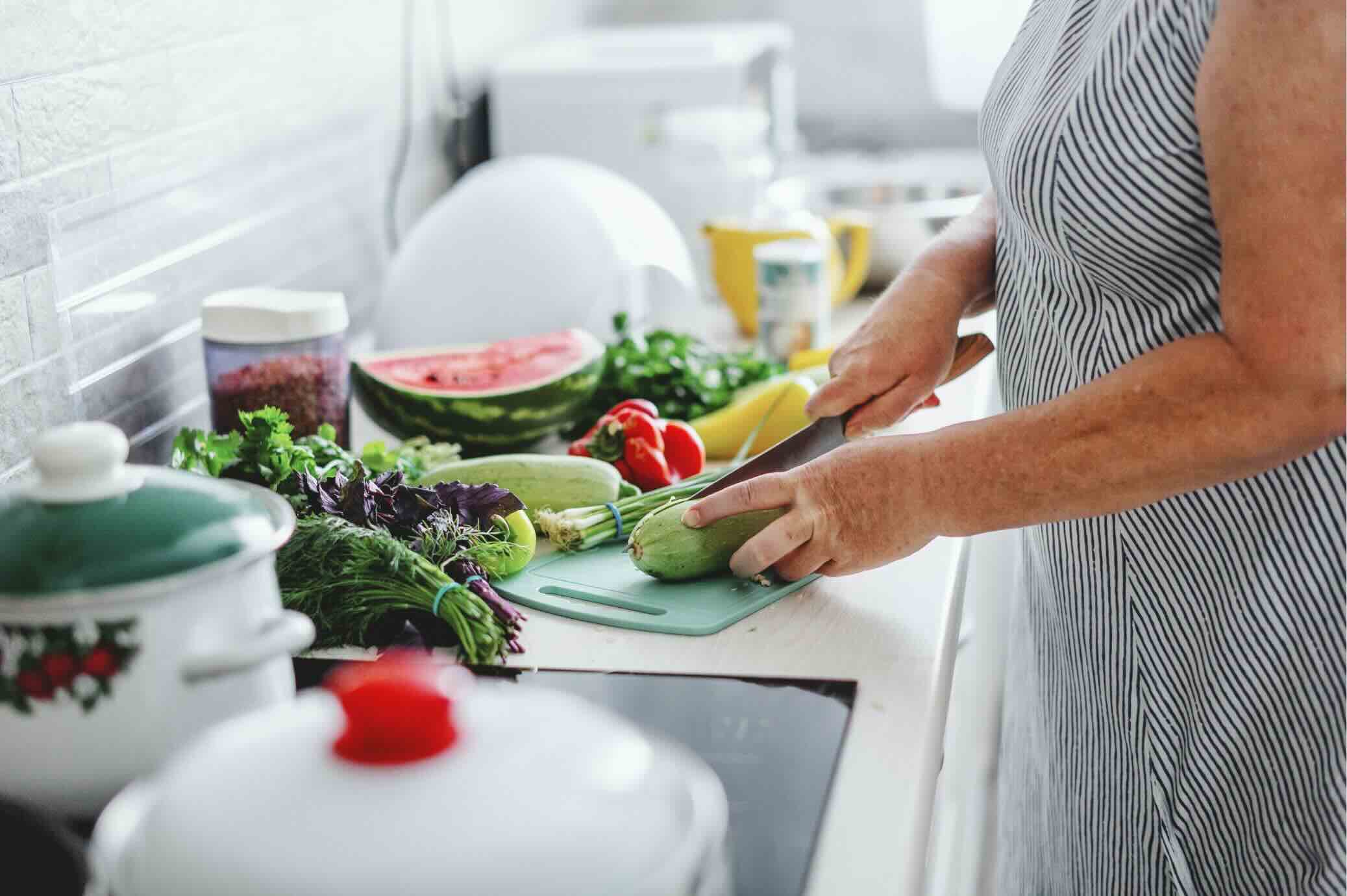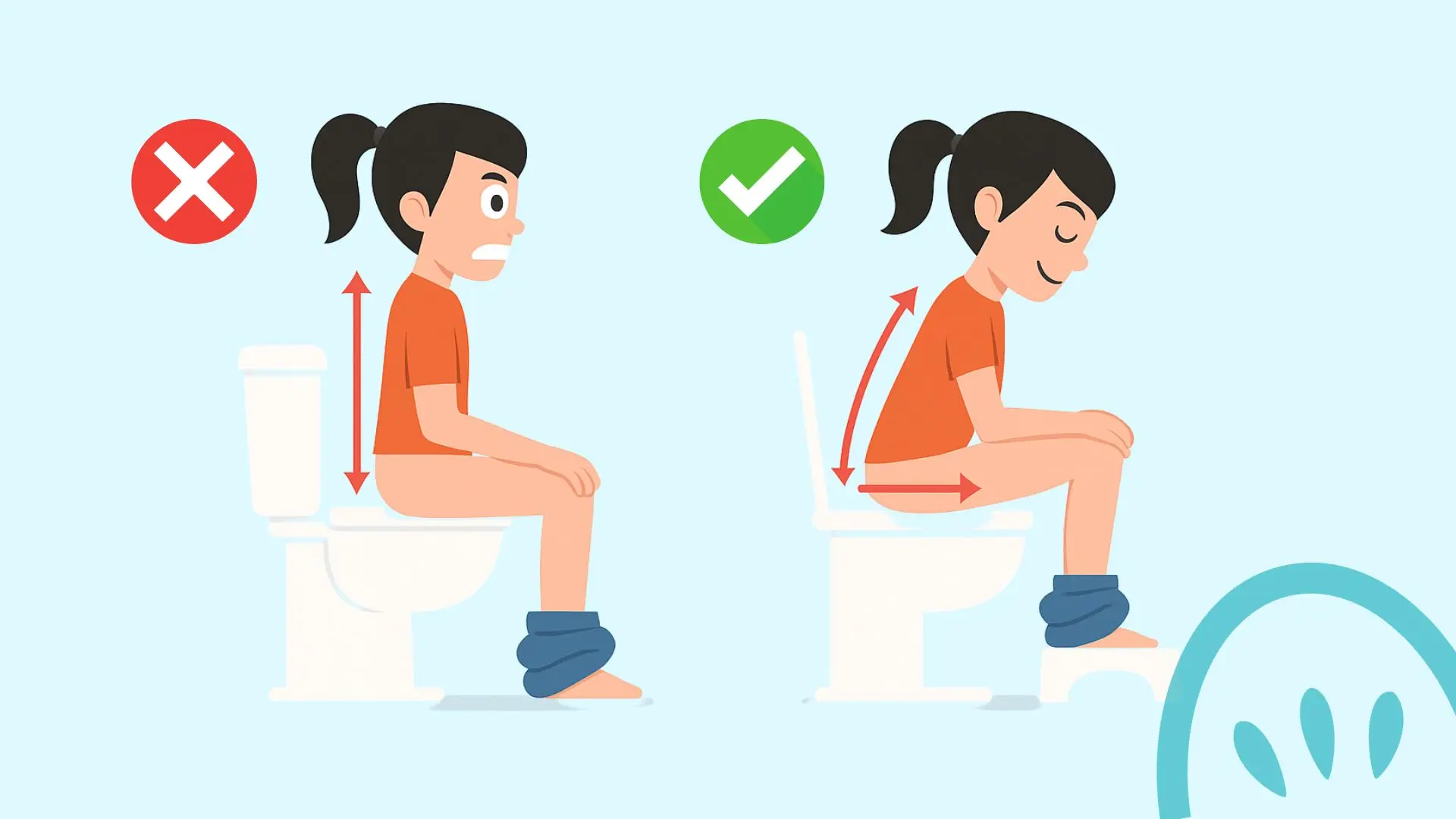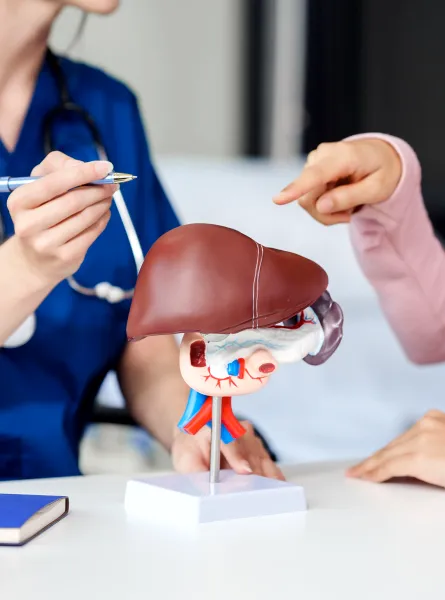
Do you often feel bloated, uncomfortable, and find your trips to the bathroom rare or difficult? You’re not alone. Constipation and flatulence are common digestive issues, but fortunately, you can relieve them naturally. With the right diet and a few simple daily habits, it’s absolutely possible to get your digestion back on track.
Understanding What’s Happening in Your Gut
Constipation is characterized by:
- Infrequent bowel movements (less than 3 times per week)
- Hard or difficult-to-pass stools
- A feeling of heaviness or bloating
It can be caused by:
- Lack of fibre or water
- Stress
- Poor posture on the toilet
- Not enough physical activity
- Poor coordination of pelvic floor muscles
Good news: many of these factors can be improved starting today, with simple, concrete adjustments.
1. Focus on Fibre: The Heart of the Strategy
🎯Goal: 25 to 50 g of fibre per day
Fibre helps increase stool bulk, stimulates the intestine’s natural movement, and nourishes your healthy gut bacteria. Tip: increase fibre gradually to avoid gas.
How to Add More Fibre Easily?
Whole Grains
- Oatmeal for breakfast, with fresh fruit and chia seeds.
- Quinoa salad with crunchy veggies for lunch.
- Barley or brown rice as a side for supper.
Legumes
- Add crispy chickpeas to your salads or as a snack.
- Make a hearty soup with lentils.
- Try a white bean dip or a vegetarian chili.
Fruits and Vegetables
- Two kiwis a day help get things moving.
- Add raspberries to your yogurt or smoothies.
- Fill half your plate with vegetables, cooked or raw.
- Keep a bag of frozen vegetables for busy evenings.
Nuts and Seeds
- A chia pudding for dessert or a snack.
- Ground flaxseed in yogurt or on your oatmeal.
- Homemade energy bites made with dates, nuts, and oats.
2. Stay Well Hydrated: The Foundation of Healthy Digestion
🎯 Goal: 2 to 3 litres of water per day
Good hydration keeps your stools soft and easier to pass.
Tips for Drinking More:
- Always keep a water bottle close (at your desk, in your bag, in your car).
- Start your day with a large glass of water.
- Drink a glass of water with every meal and snack.
- Set reminders on your phone.
- Set yourself little challenges (e.g., finish your bottle before lunch).
- Flavour your water with lemon, strawberries, mint, or cucumber.
3. Move More
Physical activity naturally stimulates digestion. Even short 10 to 15 minute walks after meals can make a real difference.
Motivation Ideas:
- Choose the stairs instead of the elevator.
- Invite a friend or colleague for a walk.
- Make your commutes active when possible.
- Give yourself a weekly challenge, like aiming for a daily step goal or trying a new group class.
4. Eat Three Meals a Day
Every meal sends a signal to your gut to get moving. Breakfast is especially important, as it’s often when the colon is most active.
Skipping meals can slow down digestion, disrupt your digestive rhythm, and cause constipation. By eating regularly, you help train your gut to function predictably and efficiently.
Practical Tips to Fit In 3 Meals a Day:
1. Start Your Day With Breakfast, Even a Small One
- If you’re not very hungry in the morning, start slow: a smoothie, a breakfast yogurt bowl or a homemade muffin.
- Add fibre right from the start, like chia seeds, fresh fruit, or a slice of whole grain bread.
2. Establish a Regular Eating Routine
- Try to stick to stable meal times, spacing meals about 4 to 6 hours apart, and snacks about 2 hours between meals.
- Plan your meal breaks ahead of time, especially if you tend to skip them on busy days.
3. Plan Your Meals to Avoid Skipping
- Make a weekly menu that includes plenty of fibre sources: veggies, legumes, and whole grains.
- Prep your lunches and snacks the night before so you’re not left without options on busy days.
5. Coffee: Your Morning Ally
Coffee stimulates colon contractions and can trigger the urge to go—even decaf.
Tips:
- Make coffee part of your morning routine, paired with a fibre-rich breakfast.
- Add an espresso shot to your smoothie.
- Try this express tiramisu as a snack.
6. Probiotics: Good Bacteria That Make All the Difference
Probiotics are good bacteria living in your gut. They help maintain balance, support digestion, and can make it easier to have regular bowel movements. Some can also help reduce bloating and improve regularity.
Where to Find Them?
You’ll find them in many fermented foods: yogurt, sour cream, kefir, miso, tempeh, fermented vegetables like kimchi or sauerkraut, and drinks like kombucha or tepache.
They’re also available as supplements. To choose the right one for you, it’s best to consult a dietitian.
Tip: Add kefir or yogurt to your breakfasts, or swap out cream in your recipes for a little sour cream. Gentle on your gut and delicious!
7. Use the Right Posture on the Toilet

A small change with a big impact to help your body eliminate naturally. How you sit on the toilet can influence your ability to pass stool.
Here’s What to Do:
- Place a small stool under your feet to raise your knees above your hips.
- Lean your upper body slightly forward, elbows resting on your knees, and keep your back straight.
- Breathe gently, don’t push. Inhale through your nose and exhale slowly through your mouth.
- Don’t stay on the toilet for more than 5 minutes. If nothing happens, it might not be the right time—try again later.
8. Combine Nutrition and Physiotherapy for Constipation Relief
In some cases, constipation can be caused by poor coordination of the pelvic floor muscles, known as pelvic dyssynergia. A combined approach—including nutrition changes and pelvic floor physiotherapy—can be very helpful.
Physiotherapy helps assess how well those muscles are working and provides relaxation and breathing techniques. Combined with nutritional guidance, this approach leads to the best results and well-rounded support.
Regain Lasting Digestive Comfort With a Dietitian’s Guidance
With good hydration, a fibre-rich diet, and simple daily habits, it’s absolutely possible to restore regular and comfortable bowel movements. Every small step counts and can truly make a difference.
Would you like support adapting your nutrition to your needs?
Our dietitians are here to guide you with care and expertise.
Book an appointment with a dietitian nutritionist today for personalized support!





